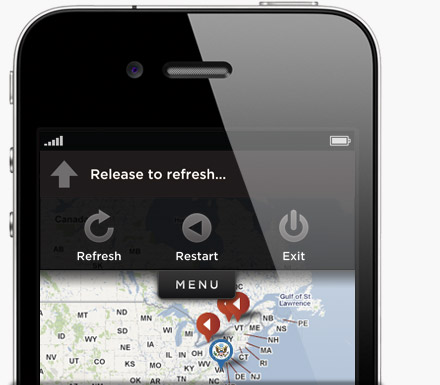 NEWS
NEWS
 NEWS
NEWS
 NEWS
NEWS
![]() Appcelerator has always been about the cloud, even indirectly. The mobile cloud development platform has taken an agnostic approach for developers to distribute their software, and as the cloud provides more virtual perks for software development, Appcelerator is able to extend a few cloud-based services of its own. A major upgrade to its flagship Titanium Studio offers companies the ability to build, test and deploy apps in the cloud. That means you can now create and application, debug it and send it out to iOS, Android, BlackBerry, PCs and Macs (HTML5 and Linux, too).
Appcelerator has always been about the cloud, even indirectly. The mobile cloud development platform has taken an agnostic approach for developers to distribute their software, and as the cloud provides more virtual perks for software development, Appcelerator is able to extend a few cloud-based services of its own. A major upgrade to its flagship Titanium Studio offers companies the ability to build, test and deploy apps in the cloud. That means you can now create and application, debug it and send it out to iOS, Android, BlackBerry, PCs and Macs (HTML5 and Linux, too).
It’s among the first offerings of its kind, turning a cloud solution into a unified solution that flows directly into the industry’s burgeoning marketplaces. Centralizing these tools reduces time and development friction for a given app, simplifying a great deal for app creators. And such an interactive cloud environment is a big leap–one Appcelerator’s been stretching towards for quite some time.
“This is a downloadable environment,” Appcelerator’s Scott Scharzhoff describes the new Titanium Studio. “The cloud piece on the desktop side is where we deploy all of our apps into our cloud for download. So the cloud is sort of a blurred line in terms of what you want.
“Once you download Titanium, you can create apps, connect them to the cloud and do it all within one interface. Otherwise you have different environments that you have to connect, and that don’t always work together.”
![]() It was the acquisition of Aptana back in January that pushed this thing along. The patent-pending development technology Aptana had was the key to adding cloud development functions to Titanium Studio’s existing offering. Throwing Aptana into the equation adds a source code editor, code completion, Gift integration and robust debugging capabilities, helping you get your app to market.
It was the acquisition of Aptana back in January that pushed this thing along. The patent-pending development technology Aptana had was the key to adding cloud development functions to Titanium Studio’s existing offering. Throwing Aptana into the equation adds a source code editor, code completion, Gift integration and robust debugging capabilities, helping you get your app to market.
“We didn’t have an extensive debugging feature,” explains Schwarzhoff. “Previously you’d create an app using your own editor. There were a lot of features missing. And we weren’t alone–our competitors are in the same boat.
“Now we have building, debugging and deployment, giving us a good platform for integrating on the backend. We support Red Hat OpenShift, letting you connect your mobile app to your web apps. It’s more fluid.”
That app fluidity is something of great importance as the mobile sector expands at an exponential rate. Anywhere-access is becoming an app standard for many consumers. They’re hungry for their own data, be it a movie library or Foursquare rewards. Fluidity means devices become portals and software a means to access the cloud, simplifying the end user’s experience and enabling more services around software.
On the enterprise level, companies are teaming up to provide wider solutions to clients. The open cloud movement lends a great deal to this, as Schwarzhoff noted in his mention of the recent Red Hat support. It’s a phenomenon that’s taking place amongst most companies in the cloud, as they leverage cloud services and hybrid environments to learn more from each other, and apply that to business methods, strategies and products. It’s a trend Appcelerator’s anticipated from its own developer community, and has proactively taken steps to address.
Support our mission to keep content open and free by engaging with theCUBE community. Join theCUBE’s Alumni Trust Network, where technology leaders connect, share intelligence and create opportunities.
Founded by tech visionaries John Furrier and Dave Vellante, SiliconANGLE Media has built a dynamic ecosystem of industry-leading digital media brands that reach 15+ million elite tech professionals. Our new proprietary theCUBE AI Video Cloud is breaking ground in audience interaction, leveraging theCUBEai.com neural network to help technology companies make data-driven decisions and stay at the forefront of industry conversations.